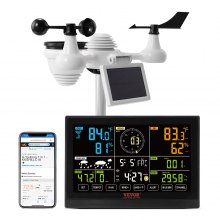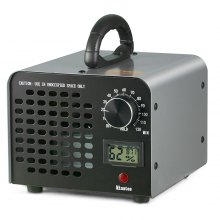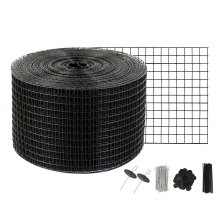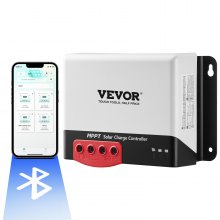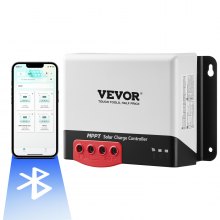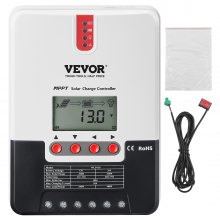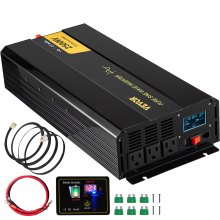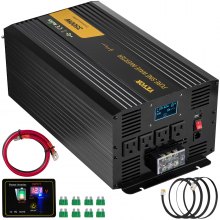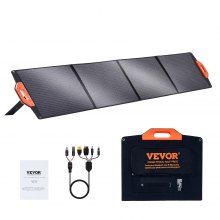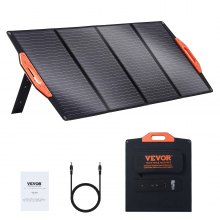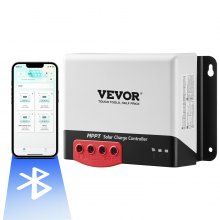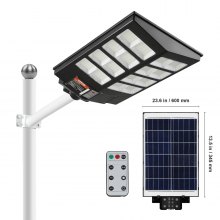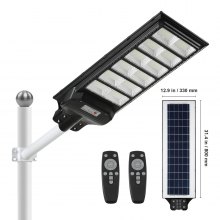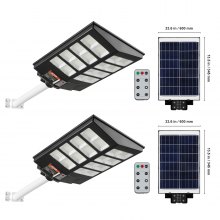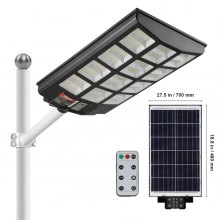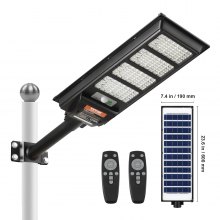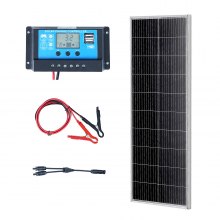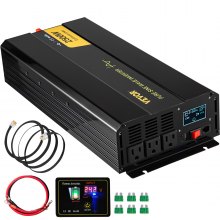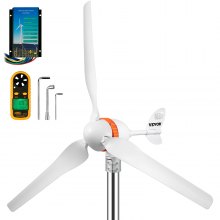Navigating the World of Solar Controllers
Introduction to Solar Controllers
Solar controllers, also known as solar charge controllers or solar regulators, are essential components of solar photovoltaic (PV) systems. These devices regulate the flow of electrical energy between solar panels, batteries, and loads, ensuring optimal charging, protection, and efficiency. In this guide, we'll delve into the world of solar controllers, understanding their functions, types, features, and considerations for selecting the right controller for your solar system.
Understanding the Functions of Solar Controllers
Solar controllers perform several critical functions within solar PV systems:
1. Charge Regulation
Solar controllers regulate the charging process of batteries by controlling the flow of current from solar panels to the batteries. They prevent overcharging, which can damage batteries, and ensure efficient charging to maximize battery life.
2. Load Control
Some solar controllers include load control features to manage the power supplied to DC loads such as lights, pumps, or appliances. Load control helps prevent battery over-discharge and ensures reliable power distribution to connected loads.
3. System Monitoring
Many modern solar controllers feature built-in monitoring capabilities to track system performance, battery status, and charging parameters. Monitoring data provides valuable insights into system operation and helps optimize system efficiency and maintenance.
1. PWM (Pulse Width Modulation) Controllers
PWM controllers are a basic type of solar controller that regulate charging by rapidly switching the connection between solar panels and batteries. They are cost-effective and suitable for smaller solar systems with moderate charging requirements.
2. MPPT (Maximum Power Point Tracking) Controllers
MPPT controllers are advanced controllers that maximize solar panel output by continuously tracking and adjusting the operating point to extract maximum power from the panels. They are highly efficient and suitable for larger solar systems with varying weather conditions.
Key Features of Solar Controllers
1. Charging Efficiency
Look for solar controllers with high charging efficiency to maximize the conversion of solar energy into usable electrical power. MPPT controllers typically offer higher efficiency compared to PWM controllers, especially in low-light conditions.
2. Battery Compatibility
Ensure that the solar controller is compatible with the type and voltage of your batteries, whether they are lead-acid, lithium-ion, gel, or AGM batteries. Some controllers offer adjustable charging parameters to accommodate different battery chemistries and voltages.
3. Load Control Capability
If you have DC loads in your solar system, consider a solar controller with load control functionality to manage power distribution and prevent battery over-discharge. Look for controllers with customizable load control settings and ample load capacity to meet your needs.
Considerations for Selecting Solar Controllers
1. System Size and Voltage
Choose a solar controller that matches the size and voltage of your solar PV system. Consider factors such as solar panel wattage, battery bank capacity, and system voltage (12V, 24V, or 48V) when selecting the controller's maximum input and output ratings.
2. Environmental Conditions
Consider the environmental conditions in which the solar controller will operate, including temperature, humidity, and exposure to dust or moisture. Choose a controller with rugged construction and suitable environmental protection ratings (IP rating) to ensure reliable performance in harsh conditions.
3. Budget and Features
Evaluate your budget and prioritize the features that are essential for your solar system. While MPPT controllers offer higher efficiency and advanced features, they may come at a higher cost compared to PWM controllers. Consider your specific requirements and balance cost with desired features and performance.
Conclusion: Harnessing Solar Power with the Right Controller
In conclusion, solar controllers play a crucial role in optimizing the performance and efficiency of solar PV systems. By regulating charging, managing loads, and monitoring system operation, these controllers ensure reliable power generation, storage, and distribution from solar panels to batteries and loads. When selecting a solar controller, consider factors such as controller type, charging efficiency, battery compatibility, load control capability, system size, environmental conditions, and budget to find the right controller that meets your solar system's needs. With the right solar controller at your disposal, you can harness the full potential of solar power and enjoy clean, renewable energy for years to come.
FAQs about "solar controller"
What is a solar controller, and what is its role in a solar power system?
A solar controller, also known as a charge controller or solar regulator, is a crucial component of a solar power system. Its primary role is to regulate the flow of electricity from solar panels to batteries and prevent overcharging or damage to the batteries. Solar controllers monitor the voltage and current of the solar panels and batteries, adjusting the charging process as needed to optimize performance and prolong battery life. They also provide protection against overvoltage, overcurrent, reverse polarity, and short circuits, ensuring safe and reliable operation of the solar power system.
What are the different types of solar controllers available?
There are several types of solar controllers available, each with its own features, capabilities, and applications. The two main types are PWM (Pulse Width Modulation) controllers and MPPT (Maximum Power Point Tracking) controllers. PWM controllers are simpler and more affordable, regulating the charging voltage by rapidly switching the solar panel's output on and off. MPPT controllers are more advanced and efficient, actively tracking the maximum power point of the solar panels to optimize energy harvest and charging performance. Additionally, there are also specialty controllers available for specific applications, such as dual battery systems, lighting control, and remote monitoring.
How do I choose the right solar controller for my solar power system?
When choosing a solar controller for your solar power system, consider factors such as the size and type of solar panels, the capacity and voltage of the batteries, and the desired features and functionality. Determine whether a PWM or MPPT controller is best suited to your system requirements and budget. Additionally, consider features such as maximum input voltage and current, battery compatibility, temperature compensation, and remote monitoring capabilities. Consult with a solar energy specialist or supplier to ensure that you select a controller that meets your specific needs and provides reliable performance and protection for your solar power system.
What maintenance is required for a solar controller?
Solar controllers typically require minimal maintenance to ensure optimal performance and longevity. Regularly inspect the controller for signs of damage, corrosion, or loose connections, and address any issues promptly. Keep the controller and its surroundings clean and free from dust, debris, and moisture to prevent interference with its operation. Check and clean the solar panels and battery terminals periodically to maintain proper electrical connections and maximize charging efficiency. Additionally, monitor the controller's status indicators and performance metrics regularly to detect any anomalies or issues that may require attention. With proper maintenance and care, a solar controller can provide reliable and efficient operation for many years.




























